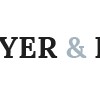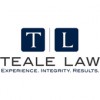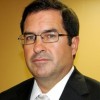Note: The use of the Internet or this e-mail link for communications with Bourque & Associates or with any attorney or staff member of the firm does not establish an attorney-client relationship or represent an engagement of this firm or any attorney. Confidential or time-sensitive information should not be sent to info@nhpatlaw.com unless prior authorization from an attorney or staff is obtained AND unless an attorney or staff acknowledges receipt of such email.
This site is maintained for informational purposes only. The information contained on this site does not constitute legal advice rendered by the firm or any of its attorneys and should not be relied upon for that purpose. If you are seeking legal advice, you should personally consult with an attorney.
This site is maintained for informational purposes only. The information contained on this site does not constitute legal advice rendered by the firm or any of its attorneys and should not be relied upon for that purpose. If you are seeking legal advice, you should personally consult with an attorney.
Services
The Firm's specialization in Intellectual Property law requires the Firm's total commitment to stay attuned to changes in the technological, legal and economic environments but ensures that our clients receive the best and most up-to-date advice in these important matters.
Each attorney and professional employed by Bourque & Associates P.A. is selected based on significant practical experience in appropriate technical fields including prior engineering and business experience.
Prompt, courteous, and professional service has been -- and remains -- the hallmark of the Firm.
Each attorney and professional employed by Bourque & Associates P.A. is selected based on significant practical experience in appropriate technical fields including prior engineering and business experience.
Prompt, courteous, and professional service has been -- and remains -- the hallmark of the Firm.
Dan holds A.S. and B.S. degrees in computer science, and received his J.D. degree from Suffolk University Law School in Boston.
He is a frequent lecturer and author on issues concerning intellectual property matters.
Fluent in the French language, he is often called upon to lecture to and represent French-speaking clients from foreign countries.
In addition to being a registered United States patent attorney, Dan a Registered Canadian Patent Attorney.
Dan is licensed to practice law in New Hampshire and Massachusetts.
He is a frequent lecturer and author on issues concerning intellectual property matters.
Fluent in the French language, he is often called upon to lecture to and represent French-speaking clients from foreign countries.
In addition to being a registered United States patent attorney, Dan a Registered Canadian Patent Attorney.
Dan is licensed to practice law in New Hampshire and Massachusetts.
In general the analysis of patent infringement involves a two step process.
First, the claims of the patent are analyzed by studying all of the associated patent documents including the patent file history.
Second, the claims, as properly interpreted must "read on" or cover the alleged infringing product.
The claims are examined word for word to determine if each element in the claim can be identified in the alleged infringing product.
Infringement may be direct, indirect, or contributory.
Direct infringement involves anyone who makes, uses, or sells the patented invention.
First, the claims of the patent are analyzed by studying all of the associated patent documents including the patent file history.
Second, the claims, as properly interpreted must "read on" or cover the alleged infringing product.
The claims are examined word for word to determine if each element in the claim can be identified in the alleged infringing product.
Infringement may be direct, indirect, or contributory.
Direct infringement involves anyone who makes, uses, or sells the patented invention.
The United States is a member of the World Intellectual Property Organization (WIPO) that has adopted the Patent Cooperation Treaty (PCT).
The PCT process is, in essence, a "delay tactic".
The PCT system allows the patent owner to delay the filing of country-by-country patent applications from the typical 12 months to 30 months from the applicant's earliest US filing date.
Thus, the term "delay tactic".
There are several other benefits that we can explain to you more fully in person.
In addition, it is important to remember that most international patents have added costs over and above those of US applications.
The PCT process is, in essence, a "delay tactic".
The PCT system allows the patent owner to delay the filing of country-by-country patent applications from the typical 12 months to 30 months from the applicant's earliest US filing date.
Thus, the term "delay tactic".
There are several other benefits that we can explain to you more fully in person.
In addition, it is important to remember that most international patents have added costs over and above those of US applications.
Reviews

Be the first to review Bourque.
Write a Review


